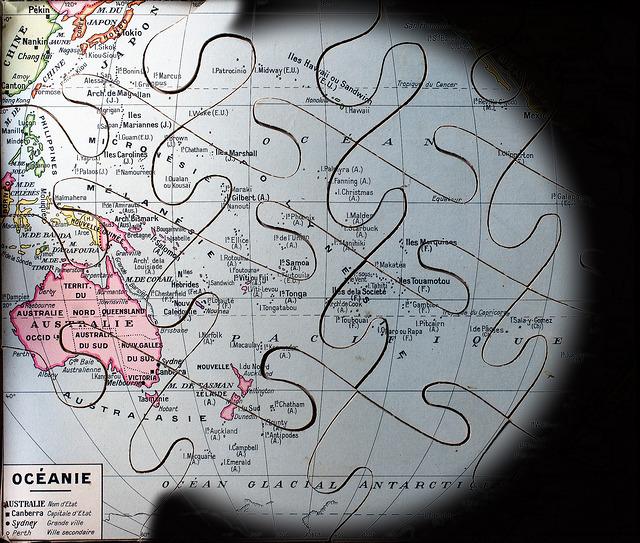The puzzle of security sector reform in Indonesia
Posted By Bob Lowry on July 19, 2016 @ 11:00

In his book on the transformation of the Indonesian Armed Forces (TNI) Lieutenant General (Retired) Agus Wijojo—now Governor of the National Resilience College in Jakarta—outlined the security sector reforms (SSR) undertaken by the TNI since the fall of Suharto and which of the reforms are still to be completed.
The major steps that still need to be taken include a comprehensive review of the policy, strategy and structure of the TNI and the completion of a legislative agenda that would, among other measures, regulate the employment of the TNI in assisting the police and civil community.
Agus concluded that the TNI had gone as far as could be expected to modernise and reform and it was now up to the executive and parliament to carry the SSR forward—but neither institution has shown much interest in the matter. President Jokowi and the TNI appear to be in an alliance of necessity which will unlikely be broken before the next elections.
In searching for answers as to why the SSR haven’t progressed since 2004, there’s little point placing the blame solely on the TNI. We have to ask why there’s no constituency for reform.
The issue that most fixates observers is the continuing dominance of the army, despite Jokowi’s maritime focus, and its retention of a bloated territorial command structure that Agus suggests could be radically pruned.
If there’s no change in Indonesia’s foreign policy, an objective review would probably conclude that Indonesia’s underlying defence policy and strategy of total people’s defence and guerrilla war, with a progressively more capable conventional military deterrent, remains valid. Regardless of how likely or imminent an external threat seemed a review would suggest radical changes in the territorial commands and their supporting units in light of the social and technological changes that have occurred over the last 20 years.
So why has the executive and legislature not insisted on such a review? The first reason is that former president Susilo Bambang Yudhoyono had other priorities, especially resolving the Aceh separatist struggle and fostering economic growth, beginning reform of a corrupt and inefficient bureaucracy, and promoting Indonesia’s place in the world. He had no desire to pick a fight with the military and was adept at keeping them at bay while he pursued his other priorities.
In the absence of strong parliamentary support and a near revolt by the police in February 2015, Jokowi came to see the military as both Praetorian Guard and useful instrument to push and secure his economic development agenda at the grass roots level.
The absence of a reform constituency can also be attributed to a military that has successfully sold the notion that Indonesia is a weak and vulnerable nation likely to be overwhelmed by debilitating foreign influences or split asunder by domestic tensions—or some combination thereof—if the TNI isn’t immediately at hand.
Islamic terrorism, especially since the declaration of the Caliphate in the Middle East in 2014, has increasingly galvanised the elite to close ranks to counter the extremist message. Various initiatives, including the Defence Ministry’s Defend the Nation Program [1], have been launched over the last few years to revive the Pancasila as the basis for an inclusive national Islamic community and thwart the appeal of a Caliphate or calls for the adoption of an Islamic state.
Another obstacle to the SSR is the incapacity of the government and political structures at all levels to provide the services for which they were formed effectively and efficiently. That’s provided the rationale for Jokowi’s employment of the military in a number of civil functions. The military has accepted those tasks because it reinforces their self-image and demonstrates their indispensability in the minds of the public. It’s perfectly legitimate for the government to employ the military in civil tasks as long as it’s done in accordance with the law and doesn’t embroil the military in partisan politics. What’s lacking is the relevant legislative and regulatory framework.
Although the police are in drastic need of fundamental reform, they’ve been successful so far in containing terrorism, which has quelled the TNI’s demand so far for a greater role in counterterrorism. Whether Jokowi can withstand that pressure has yet to be seen but much will depend on how successful the newly appointed chief of police, General Tito Karnavian, is at pushing police reform. To achieve that, he’ll need the support of the other members of the justice sector.
What might revive the SSR? Perhaps an external shock, like a clash between patrol vessels protecting fishing or exploration in the EEZ, or frequent incursions by foreign military aircraft, or an attack on the forces of another ASEAN member could be the prompt. Perhaps an internal shock such as a revolt or a botched internal security response, or a poor response to a national disaster might provide the spark. Perhaps an improvement in public service delivery might make continued employment of the TNI in civil tasks unnecessary and create the political circumstance that allowed the government to resume the SSR. An objective review now would at least provide an intellectual basis for reform made necessary by either crisis or evolution.
Article printed from The Strategist: https://aspistrategist.ru
URL to article: /puzzle-security-sector-reform-indonesia/
URLs in this post:
[1] Defence Ministry’s Defend the Nation Program: https://www.kemhan.go.id/wp-content/uploads/2016/05/2015-INDONESIA-DEFENCE-WHITE-PAPER-ENGLISH-VERSION.pdf
Click here to print.